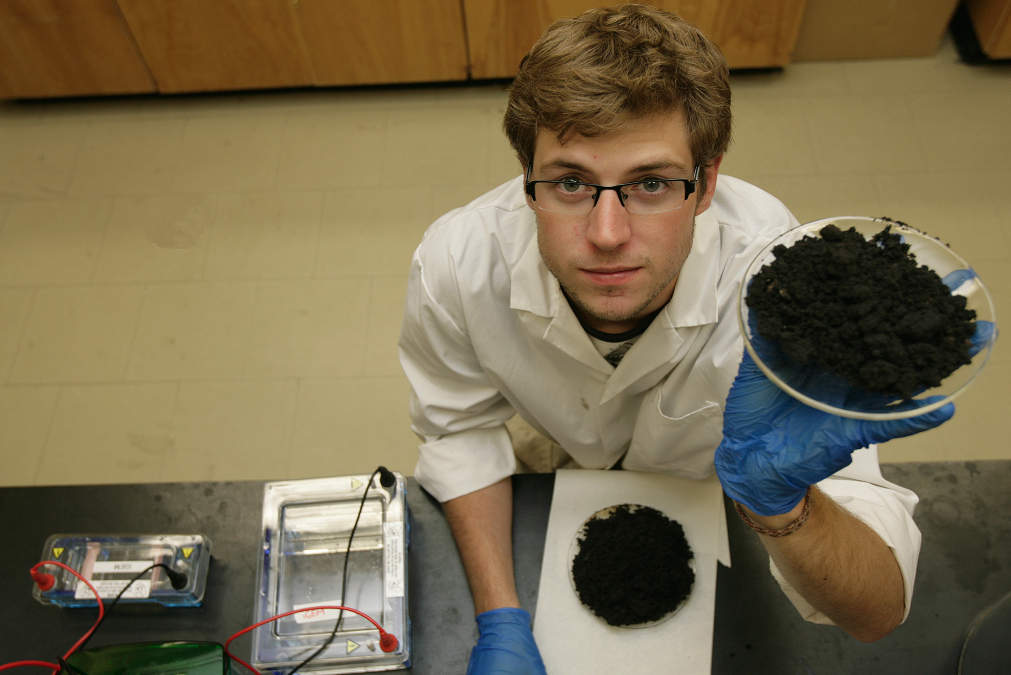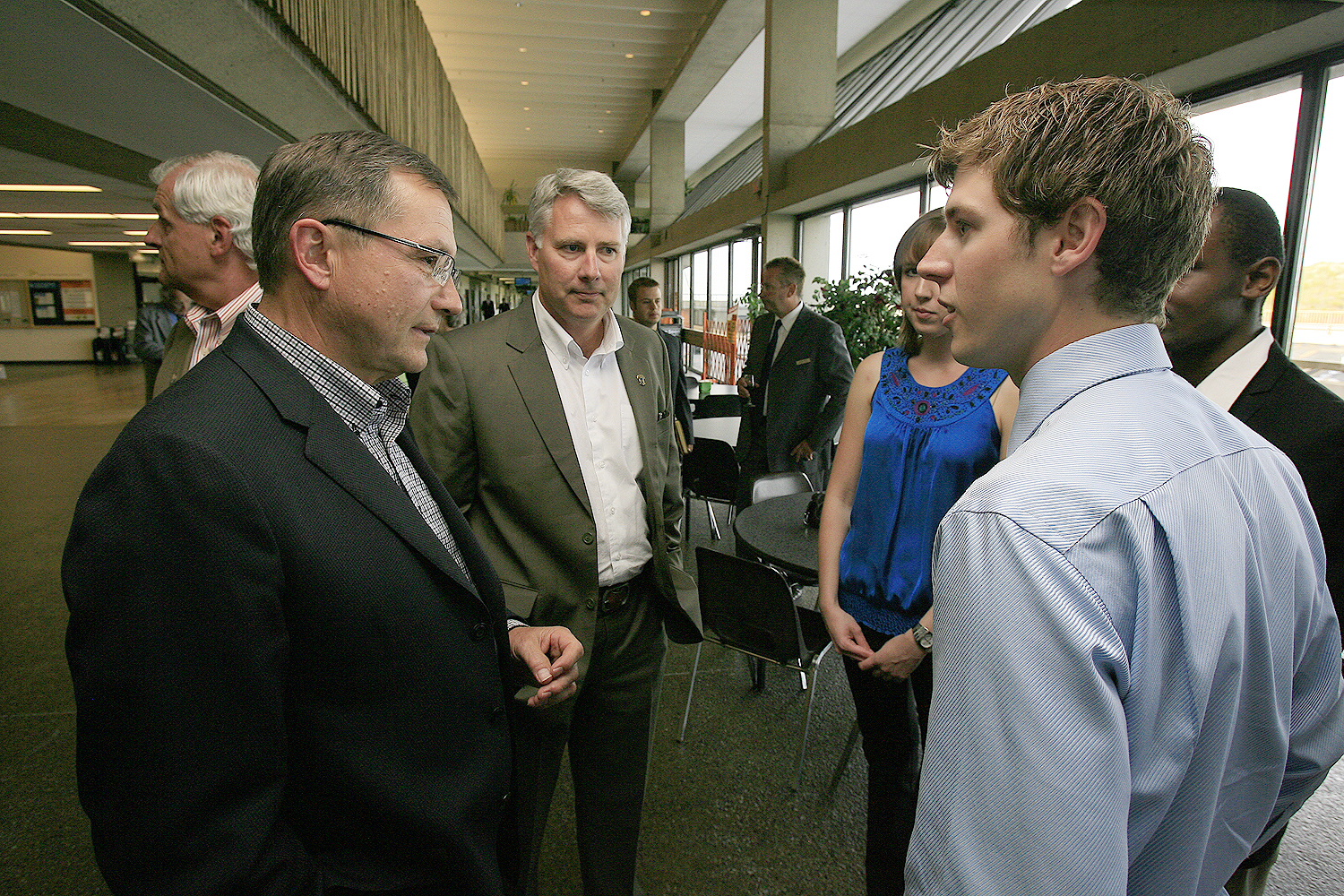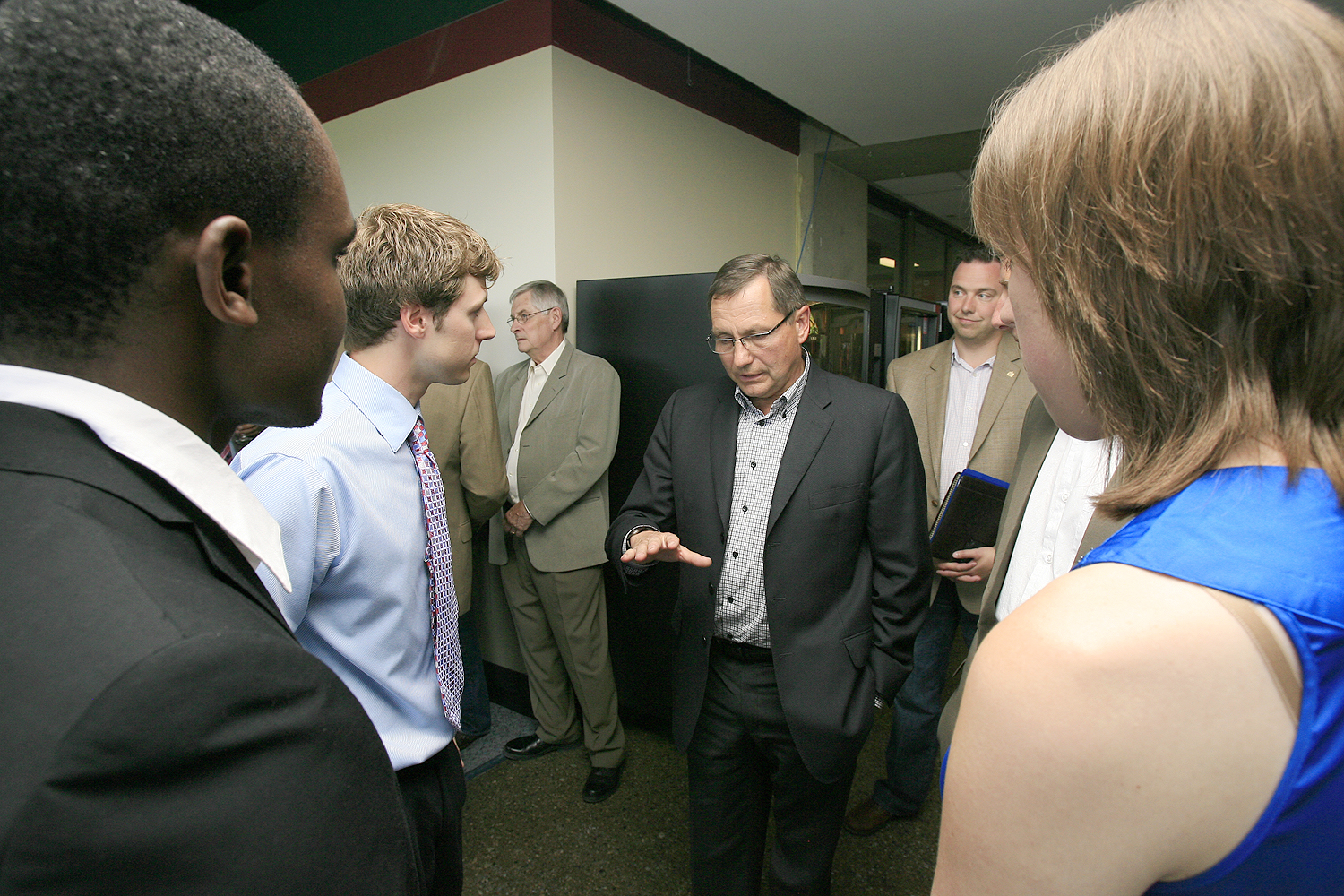Team:Lethbridge/News
From 2010.igem.org
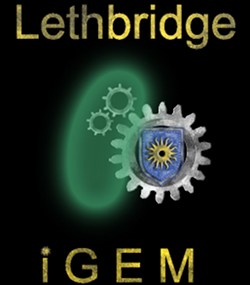
| 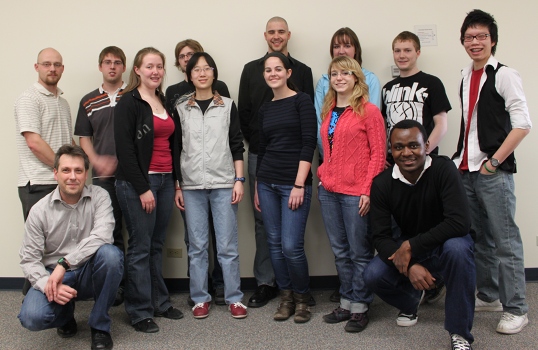
| 
| |||||||||
|---|---|---|---|---|---|---|---|---|---|---|---|
|
| |||||||||||
Oil Sands Tailings Pond Cleanup Funding Lands U of L Student iGEM Team $20,000
July 15, 2010
iGEM team member Justin Vigar displays a sample of oil sand which the group will be using, along with a sample of tailings pond water, to help refine a bacteria than can feed on petrochemical residue
A group of University of Lethbridge undergraduate chemistry, biochemistry and neuroscience students has been awarded an international research grant to help solve a challenge posed by a consortium of leading energy companies -- Find a biological solution to improve the environmental sustainability of Alberta’s oil sands bitumen extraction, upgrading and refining.
The students are members of the multiple-award-winning International Genetically Engineered Machines (iGEM) team at the U of L, and each year take on a synthetic biology research project which they present at an international competition held at the Massachusetts Institute of Technology (MIT) in Boston, MA.
The group was the only team in the iGEM world-wide membership to receive $20,000 from the Oil Sands Initiative (information attached, below) to study how a petrochemical-eating bacteria their group plans to design could be used to help clean up water in tailings ponds – a byproduct of the bitumen refining process in which water that cannot be recycled is deposited into large ponds to settle.
“As a team from Alberta, we know of the economic benefit that the oil sands have brought to the province,” team spokesperson Justin Vigar said. “Many members on our team have friends and family employed around the province in the energy industry."
"However, we are also aware of the environmental impact of the oil sands, specifically the tailings ponds. We feel it is important not only to clean the tailings ponds, but be able to extract the potential energy of the residue bitumen at the same time.”
Vigar added that the iGEM team has previously worked on many related projects, which gives them a significant advantage when facing this new challenge as the only iGEM group currently working on this unique approach to environmental cleanup.
“Our iGEM teams have designed a variety of synthetic biology components that all relate to this new project. One year, the team created a biological ‘switch’ that directed bacteria to move toward certain types of contaminants. The next year, we refined that to make the bacteria consume a specific chemical compound, then stop reproducing – we called it a ‘bacuum cleaner.’ Last year, we designed what we called ‘bio-batteries’ that use bacteria with photosynthetic properties to generate electrical currents.”
Vigar said that the group hopes to accomplish several things with their research. “We intend to create and characterize biological parts that can be used in the efforts of cleaning the tailings ponds, and those parts will be available to the general public for use in the future through the Registry of Standard Biological Parts housed at MIT.
The other benefit will be to the team members as they progress in their academic and post-university careers. “This experience will be extremely beneficial to enhance team members independent and critical thinking,“ Vigar said.
“As well, we learn how classroom knowledge can be directly applied in helping to solve everyday issues - specifically the application of Synthetic biology to ‘engineer’ solutions. There is also the potential to contribute to scientific papers -- which is rewarding and especially advantageous when applying for graduate studies, medical school, or jobs in the pharmaceutical industry.”
Vigar said the iGEM competition and running an independent research lab with undergraduate students in particular has given him and his team members a glimpse of what science can accomplish and how there are additional, and infinite possibilities through scientific advancement.
“iGEM has spurred our scientific creativity in what we can and cannot do, and has opened our eyes to not only the field of synthetic biology, but made us more aware of the research community in general.”
About the Oil Sands Initiative: https://2010.igem.org/Oil_Sands
A group of leading energy companies in Alberta are collaborating with the Institute for Sustainable Energy, Environment and Economy (University of Calgary) and the School of Energy & The Environment (University of Alberta) on a new iGEM initiative. Sponsorship is offered in iGEM's "Energy & Environment" track.
Teams were invited to submit iGEM project proposals especially in the area of biologically based solutions to improve the environmental sustainability of oil sands bitumen extraction, upgrading and refining, for either in situ or surface mining processes.
iGEM general information: https://2010.igem.org/About
Registry of Standard Biological Parts housed at MIT: http://www.partsregistry.org
--30 --
Contacts:
Bob Cooney, Communications Officer, Media Relations (403) 330-4609 cell phone/media calls e-mail: robert.cooney@uleth.ca
iGEM spokesperson Justin Vigar (403) 795-1098 Cell E-mail: justin.vigar@uleth.ca IGEM Team website: https://2010.igem.org/Team:Lethbridge
Dr. Hans-Joachim Wieden, (Chemistry and Biochemistry) iGEM Team Supervisor
(403) 329-2303
E-mail: hj.wieden@uleth.ca
 "
"









